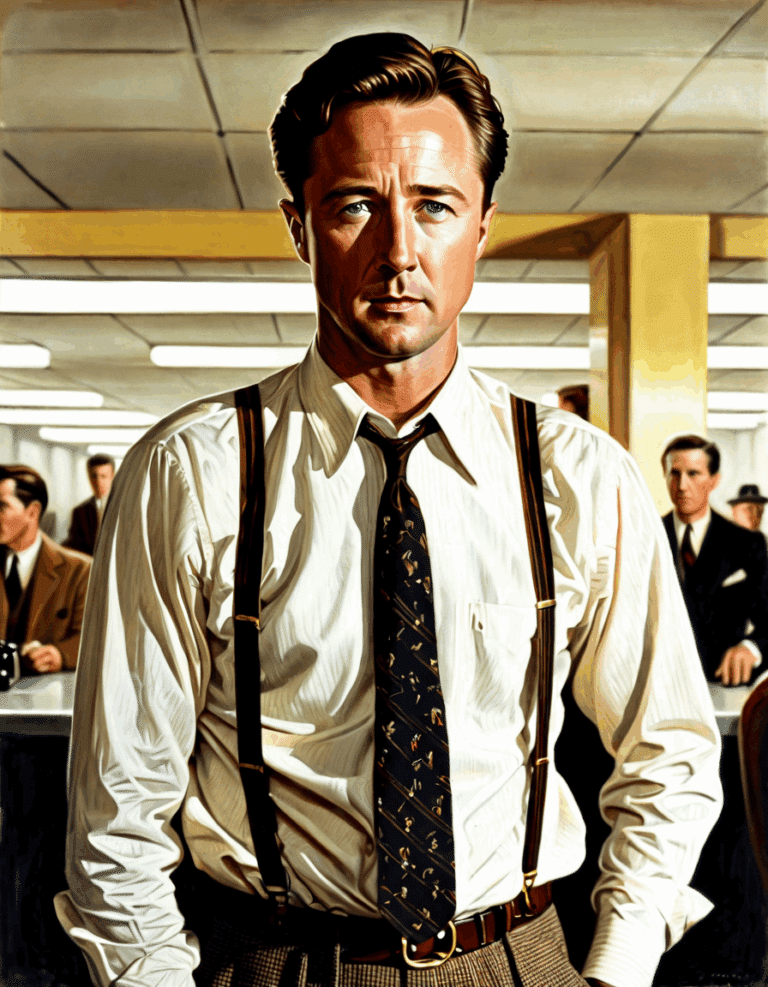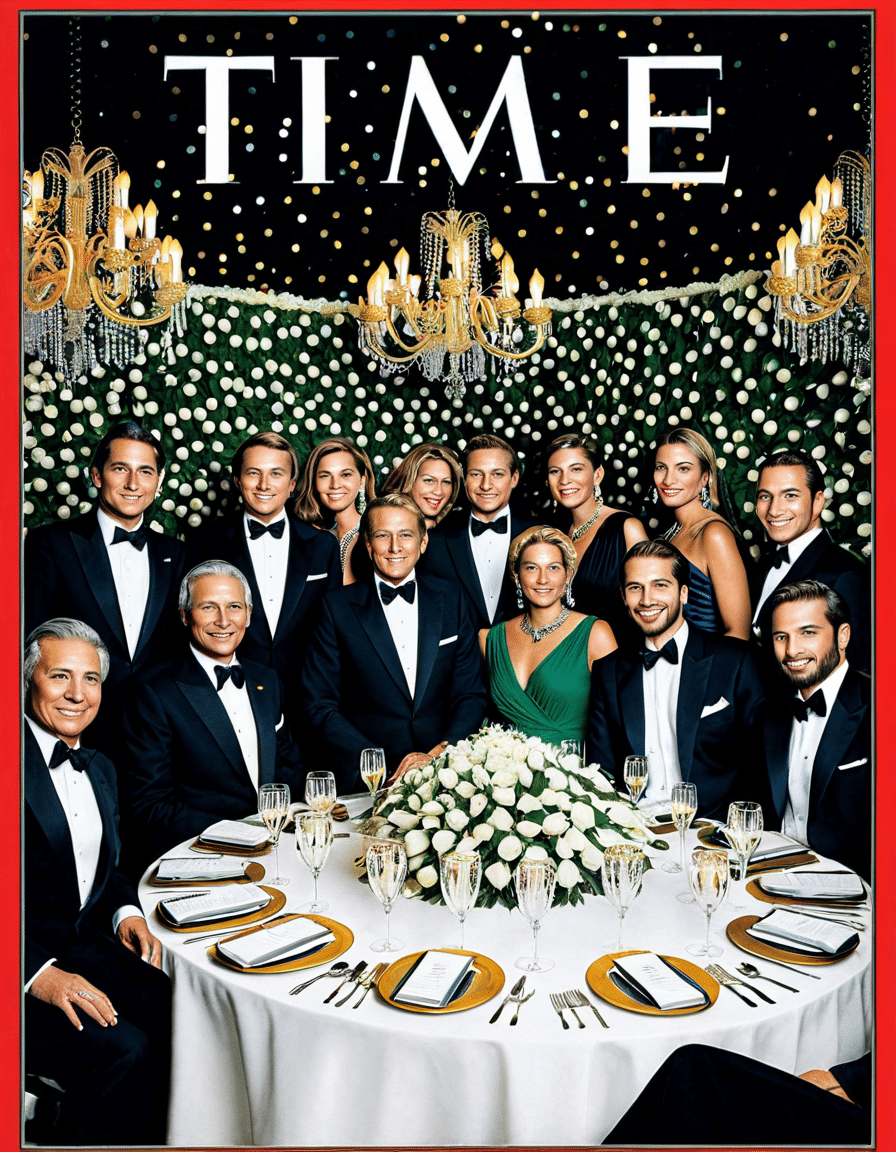Materialists have wielded undeniable influence over our society, engendering revolutions that have shaped industries and, indeed, the human experience itself. These individuals embraced a tangible outlook, using raw materials and ideas alike to forge a path through the complexities of life. From philanthropy to innovation, the impact of materialism echoes through our streets—reflecting ambitions that reach far beyond mere possession. Let’s dive deep into the lives of seven influential materialists who changed our world forever.
1. Karl Marx: The Philosopher of Material Conditions
When we peer through the lens of history, Karl Marx stands out as a luminary. He dissected the structures of society, arguing that material conditions—not lofty ideas—dictate the course of history. Marx’s theories on historical materialism have reverberated through economic and social paradigms, shaping movements that seek equality and social justice. His insights into class struggle reveal not just the past but highlight the persistent socioeconomic disparities we observe today.
Marx’s theories have incited revolutions across continents, questioning traditional power dynamics and encouraging societies to rethink their values. His emphasis on the role of labor in creating wealth has invigorated modern discussions surrounding workers’ rights and economic equity. What’s more, Marx’s work serves as a critical lens through which we can view our modern capitalist societies, making him a quintessential figure in the discussion about how material conditions dictate our social fabric.
If you’re intrigued by how societal structures tie back to these material ideologies, consider how related movements today mirror Marx’s thoughts. From workers’ unions advocating for better conditions to grassroots organizations fighting for equal rights, traces of Marx’s legacy are alive and vibrant. Indeed, engaging with such figures could illuminate a path toward a more equitable future.

2. Andrew Carnegie: The Steel Baron with a Vision
In the late 19th century, Andrew Carnegie embodied the pinnacle of American industrial materialism. He didn’t just dominate the steel industry; he transformed how we viewed wealth and responsibility. His pioneering role in developing the steel manufacturing processes not only boosted the economy but laid down the American industrial framework we know today. What really set Carnegie apart was his conviction that wealth wasn’t just for hoarding—it was a force dedicated to social improvement.
He famously stated, “The man who dies rich, dies disgraced, emphasizing philanthropy as a moral imperative of wealth.” His legacy includes countless libraries and educational institutions, reinforcing the notion that success is meant to uplift society. Carnegie’s belief in education as a tool for progress remains influential as we navigate today’s discussions about access to knowledge and opportunity.
Carnegie’s story is a reminder that material success can coexist with a commitment to community. As we ponder our roles in society, we must ask ourselves: how can we, like Carnegie, channel our material ambitions for the greater good? This very ethos could inspire new generations of entrepreneurs to intertwine economic success with a sense of purpose.
3. Thomas Edison: The Wizard of Invention
When we think about materialist visionaries, Thomas Edison leaps to mind. Known as “The Wizard of Menlo Park, Edison didn’t just invent trifles; he fundamentally reshaped our existence through innovation. His creation of the electric light bulb and the phonograph redefined leisure and daily life. By establishing laboratories focused on organized research, Edison laid the groundwork for the modern R&D model, emphasizing that ideas could be harnessed and commercialized for societal benefit.
Edison’s inventive spirit also expanded the marketplace for creativity. He believed in turning abstract concepts into tangible realities, which spurred countless technological advancements that we now take for granted. Imagine a world without electricity or recorded sound; Edison’s mark on history is a testament to the power of ingenuity in propelling society forward.
Moreover, Edison’s commitment to practical innovation exemplifies how materialism fosters tangible benefits. Today’s tech titans could take a page from his playbook; his story serves as a roadmap for blending creativity with commerce, ensuring discoveries make their way into everyday life.

4. Steve Jobs: The Visionary Materialist
Steve Jobs revolutionized not just technology but our relationship with it. By intertwining aesthetics with functionality, he created products that were not merely tools but extensions of ourselves. Take the iPhone: it reshaped our connection to information, each device a little universe filled with potential. Jobs’ insistence on quality spawned a cult of loyalty that extends well beyond mere consumerism; it’s about identity.
Jobs believed in the elegance of simplicity—something that pushed boundaries in tech design. This marriage of form and function didn’t just alter the tech landscape; it fundamentally changed how businesses engaged consumers. His philosophy, “Design is not just what it looks like and feels like. Design is how it works,” resonates in every corner of architecture, fashion, and beyond. It’s about crafting experiences that beckon from the shelves to our fingertips.
His approaches opened up an ongoing dialogue between technology and lifestyle, reminding us that materialism can foster creativity and profound connections. Just like approaching a new canvas, Jobs painted a fresh world where gadgets aren’t just functional; they’re stylish companions echoing personal connections.
5. Jeff Bezos: The Architect of E-Commerce
Jeff Bezos transformed retail through Amazon, making e-commerce a household name. Driven by a materialist ethos, Bezos zeroed in on efficiency and consumer choice, creating an empire that revolves around user experience. His precise data-driven approach to optimization created a model that has become a blueprint for countless other enterprises. Amazon redefined convenience, pioneering trends that have set industry standards.
Bezos’s relentless pursuit of customer satisfaction indicates a shift in business ethos. For him, the customer isn’t just right; they’re the focal point of innovation. By curating a platform that emphasizes accessibility and variety, he reshaped our shopping experience, drawing folks away from brick-and-mortar stores into the boundless territories of online retail.
Yet, his journey also serves as a cautionary tale about the impact of such materialism—the readjustments required as society grapples with issues like data privacy and market monopolization. As we navigate this new retail era, it’s crucial to think critically about what a material-driven landscape means. This discussion invites us to explore how we define our consumer experiences—are we solely driven by material needs, or is there more to the story?
6. Elon Musk: The Materialist of Space and AI
Elon Musk stretches the boundaries of materialism, channeling it into the realms of space and artificial intelligence, reshaping our future. As the mastermind behind SpaceX and Tesla, Musk embodies the ambition to push humanity’s limitations through tangible means. His vision is grand, aiming to colonize Mars while simultaneously pioneering sustainable transportation solutions with electric vehicles.
Musk’s endeavors harbor a materialist focus on transforming our environment and extending human lifespan. This blend of technology with environmental consciousness invites an examination of our interaction with both the planet and the cosmos. His ventures provoke us to think about sustainability—not merely as a concept but as a tangible goal.
With each project, Musk urges us to engage with the future imaginatively while ensuring that progress doesn’t come at the cost of our planet. His work doesn’t just challenge norms; it constructs new paradigms, leading us into debates about AI ethics and the possibilities of human augmentation. The evolution of materialism through his lens poses critical questions about how we can leverage innovation for sustainable practices—creating a conversation that must resonate with future generations.
7. Richard Branson: The Entrepreneurial Materialist
Richard Branson, the founder of the Virgin Group, has seen success across diverse industries, from music to travel. His entrepreneurial spirit embodies a materialist perspective that emphasizes branding and consumer connection. Branson has demonstrated that businesses can be profitable while promoting social good—a notion we often overlook in profit-driven markets.
His efforts in philanthropy further elucidate this idea; Branson’s ventures often carry a core value of community development. From global health initiatives to environmental efforts, his approach to material success advocates for a business model that champions collective improvement. Branson’s ventures ring true in today’s climate, encouraging modern entrepreneurs to think deeply about their roles in their communities.
What’s captivating about Branson’s narrative is his ability to blend materialism with altruism. As consumers today become more conscious of their purchases, Branson’s model offers a blueprint for combining success with responsibility. This visionary approach invites a broader discussion about how we, too, can intertwine personal ambitions with global necessity.
The Intersection of Materialism and Numerology: A New Paradigm
As fascinating as the drive of materialists is, we cannot overlook the interplay of meaning woven through concepts like numerology. The ancient philosopher Pythagoras once observed that numbers possess the power to define the essence of reality. Today, this insight finds a new form in how materialists utilize data analytics—emphasizing that numbers can lead us to more informed business decisions.
Entrepreneurs know that success doesn’t rely on intuition alone; it often borrows from numerical insights to refine strategies. This emerging paradigm is like a modern twist on Pythagorean wisdom, guiding ventures towards rational foundations. It urges us to reflect on our intrinsic connection to numbers in assessing value, success, and growth.
The crossover between materialism and numerology invites thoughtfulness into today’s commercial practices, challenging entrepreneurs to consider the broader implications of their numbers beyond mere profit. Understanding this synergy enriches conversations on how we define success in tangible weight rather than fleeting trends.
Rethinking Materialism for a Sustainable Future
The stories of these seven materialists reveal the fruitful intersections of ambition, innovation, and responsibility. While undeniably transformative, their legacies spark crucial discussions around the impacts of consumerism and the responsibilities that accompany material success. As we face the growing challenges of climate change and socio-economic divides, it’s time to engage in a reevaluation of our relationship with materialism.
How can we channel the values embedded in the legacies of these figures to foster a more sustainable future? We must seek ways to harmonize our material ambitions with an ethos of equity and environmental consciousness that respects our finite resources. The rich narratives we uncover remind us that, while we push for progress, it’s equally crucial to consider the greater impact of our pursuits.
Thus, as we move forward in this intricate dance between material gain and social responsibility, the inspiration drawn from these materialists can help us craft a more vibrant, equitable future. The onus is on us as individuals and communities to redefine materialism not as a race for possessions, but as a journey towards meaningful, collective advancement.
Materialists Who Changed Our World Forever
Materialists’ Impact on Society
Materialists have shaped our societies in various ways, with their emphasis on tangible results and a pragmatic approach to life’s challenges. For instance, think about how sports icons like Abby Wambach not only dominate the field but also advocate for social change, demonstrating the profound influence materialism can have beyond mere possessions. Their focus on results can drive innovation and progress. Imagine if every athlete brought such a fierce commitment to their profession and community—the possibilities are endless!
Philosophical Roots and Real-World Consequences
Delving deeper, the philosophical roots of materialism have sparked intense debates throughout history, often challenging spiritual and idealistic perspectives. The cast dynamics of shows like Married To Medicine showcase how the clash between material success and personal values can become a powerful narrative. Ultimately, the tug-of-war between material ambitions and emotional fulfillment remains ever relevant and resonates with many in today’s society. As we explore these themes, materialists remind us of the tangible and often harsh realities of life.
Trivia That Makes You Think
Did you know that historically, materialists have been credited with pushing society into scientific and technological advancements? Just look at how their relentless pursuit often aligns with the path of enlightenment, much like how The way was paved for modern thinking. For instance, when problems arise, one might turn to practical solutions like finding answers on resources such as the latest Contexto answer. It’s clear that embracing a materialist perspective has influenced everything from science to the arts, including cinematic ventures featuring the cast Of Wolves upcoming film that mirror these philosophies.
In today’s landscape, think about organizations like Selco Credit union that embody the materialist ethos of serving community needs. The focus is on practical resources and solutions aimed at improving everyday life, which is pretty much a textbook win for materialists. Even in social settings, discussions often lead back to practical matters—like AA Meetings in Orange County where real struggles meet tangible outcomes. And as creativity fuels industries, the work of artists like Andrew Lloyd webber showcases how materialist perspectives can weave into our cultural fabric.
In essence, materialists have profoundly influenced how we live, work, and view the world. Their legacy of practicality, progress, and purpose is a treasure trove of inspiration worth exploring!
































